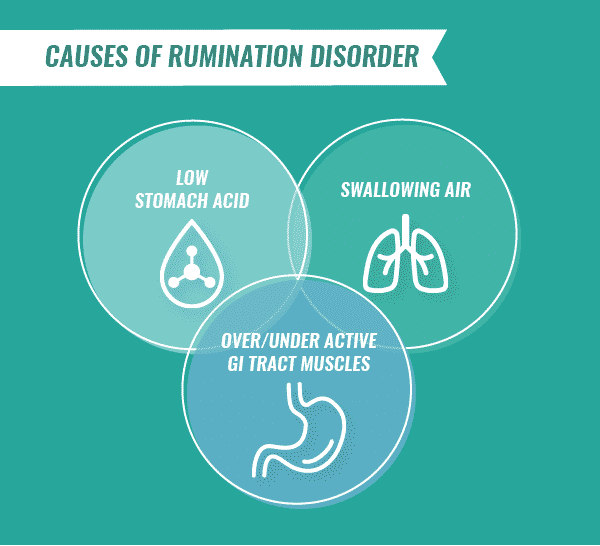Rumination Syndrome

Imagine finishing a meal only to have your food effortlessly return to your mouth minutes later,
not due to nausea but as an involuntary reflex.
This is the reality for individuals with Rumination Syndrome,
A misunderstood and often misdiagnosed condition.
What is Rumination Syndrome?
- Rumination Syndrome is a functional gastrointestinal disorder,
Characterized by the effortless regurgitation of recently ingested food,
Typically within 10–15 minutes after eating.
- Unlike vomiting, this regurgitation is not preceded by:
Nausea is often not acidic,
As the food hasn’t been digested yet.
- The regurgitated food may be:
- Rechewed
- Reswallowed
- Spat out
Causes and Risk Factors

The exact cause of Rumination Syndrome remains unclear.
Several factors may contribute:
Behavioral Factors
- Learned behaviors related to abdominal muscle contractions.
Psychological Factors
- Associated with:
- Anxiety
- Depression
- Other psychiatric disorders
Developmental Delays
- More common in individuals with developmental disabilities.
Physical Factors
- Increased abdominal pressure leading to regurgitation.
Misdiagnosis can lead to ineffective treatments.
- It’s essential to differentiate Rumination Syndrome from other conditions like:
- GERD
- Gastroparesis
- Eating disorders
Symptoms to Watch For
Common symptoms include:
- Effortless regurgitation of undigested food shortly after eating.
- Abdominal discomfort relieved by regurgitation.
- Nausea or a feeling of fullness.
- Unintentional weight loss.
- Bad breath and dental erosion due to frequent regurgitation.
These symptoms can significantly impact an individual’s quality of life.
Leading to social embarrassment and isolation.
Diagnosis
Diagnosing Rumination Syndrome involves:
Clinical Evaluation
- Detailed patient history focusing on the timing and nature of regurgitation.
Exclusion of Other Conditions
- Ruling out GERD, gastroparesis, and eating disorders.
High-Resolution Manometry
- Measuring esophageal pressure to detect characteristic patterns during regurgitation episodes.
Rumination Syndrome: Treatment Options
Behavioral Therapy
The cornerstone of treatment is behavioral therapy,
Particularly diaphragmatic breathing techniques, which involve:
- Training the diaphragm to counteract regurgitation reflexes.
- Practicing controlled breathing exercises before and after meals.
- Biofeedback may also be employed to enhance the effectiveness of these techniques.
https://en.wikipedia.org/wiki/Behaviour_therapy
Pharmacological Interventions
- In cases where behavioral therapy is insufficient,
Medications like Baclofen, a muscle relaxant, may be prescribed to reduce the frequency of regurgitation episodes.
Technological Innovations in Management
Emerging technologies offer promising adjuncts to traditional treatments:
Wearable Devices
- To encourage mindful eating practices, EMG-based sensors can:
- Monitor eating behaviors
- Provide real-time feedback
Mobile Applications
- Apps designed to track meals and symptoms can help patients:
- Identify triggers
- Monitor progress
Telehealth Services
Remote consultations with specialists can provide accessible behavioral therapy sessions.
Rumination Syndrome: Conclusion
- Rumination Syndrome is a complex disorder.
- For effective management, a multidisciplinary approach.
- Combining behavioral therapies with technological tools can empower patients to:
- Regain control over their digestive health
- Improve their quality of life.
- If you or someone you know is experiencing symptoms of Rumination Syndrome,
Consult a healthcare professional for proper diagnosis and treatment.
- Explore technological tools and therapies
that can aid in managing this condition effectively.
Disclaimer:
- The information provided in this blog is only for:
- Education
- Information
- It is not intended as a substitute for professional:
- Medical advice
- Diagnosis
- Treatment
- Always contact your healthcare advisor before making any decisions regarding your health-related matters.
Visit raiseyourdimensions.com for more health related topics







